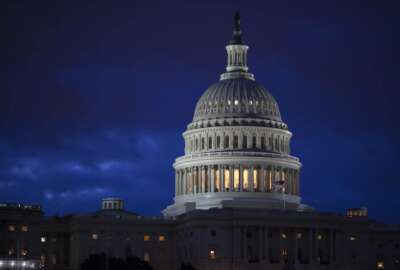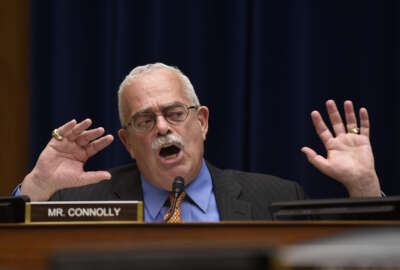
Oct. 30 is THE deadline. But for what?
Senior Correspondent Mike Causey says many feds are afraid that Congress will change retirement rules, forcing them to pay lots more and get lots less.
Are there people in your office who love their jobs and dread retirement, but are putting in their papers effective at the end of this month?
Why are so many air traffic controllers and federal firefighters suddenly very nervous in the civil service?
Some feds are convinced that Congress is going to make big-time, devastating-to-feds changes in the retirement plan. They believe that by getting out in time, they could avoid losing the Social Security gap payment now available to FERS retirees who leave before age 62, when they are first eligible for Social Security. Many feds are in jobs that, because of their danger and/or stress level, are forced to retire at age 57. For them, loss of the gap payment would deprive them of thousands of dollars they will need in retirement.
Others fear that Congress will raise the retirement contribution rate for the FERS system by one percent a year over the next six years. Many are nervous that Congress will eliminate the FERS program altogether, forcing them to finance their own retirement private-sector style, depending on Social Security and income from their Thrift Savings Plan accounts.
There are a half dozen plans out there that — if approved by the House and Senate — would deal a major body blow to some or all of the retirement program. How about eliminating COLAs (cost-of-living adjustments) for FERS retirees and trimming them 0.5 percent each January for CSRS retirees?
Most of the proposals represent outlines in the White House budget or instructions to committees of jurisdiction about where they might make changes (or cuts) to achieve 10-year savings goals. The bad news is that they are out there (some for the first time) and Congress appears to be taking them seriously. The good news, maybe, is that some are so vague (or not part of any Senate budget plan) nobody understands them, or whether the effective dates would be limited to future hires, or whether they would be retroactively applied to current employees.
To learn more about what’s out there for feds, listen to today’s Your Turn radio show. My guest is Federal News Radio reporter Nicole Ogrysko, who has been following the budget proposals, and talking with legislators and lobbyists too. She knows as much as anyone about what is happening. And not happening. And although she’s an expert on the subject, she says she is still confused. So welcome to the club. For her road map through the legislative minefield, click here.
She warns feds not to make a retirement decision solely on what Congress MIGHT do. Because it also might not do it. Listen today at 10 a.m. EDT. The show will also be archived on our homepage so you can listen later. Or suggest it to a friend. Bottom line:
As always, but especially on a subject as important as early retirement, look before you leap.
And this time also listen before you look!!!
Nearly Useless Factoid
Eight people died in the London Beer Flood of 1814, when the vats at Meux and Company Brewery burst and almost 400,000 gallons of beer flooded the nearby neighborhood.
Source: Wikipedia
Read more of Mike Causey’s Federal Report
Copyright © 2025 Federal News Network. All rights reserved. This website is not intended for users located within the European Economic Area.
Mike Causey is senior correspondent for Federal News Network and writes his daily Federal Report column on federal employees’ pay, benefits and retirement.
Follow @mcauseyWFED
Related Stories





